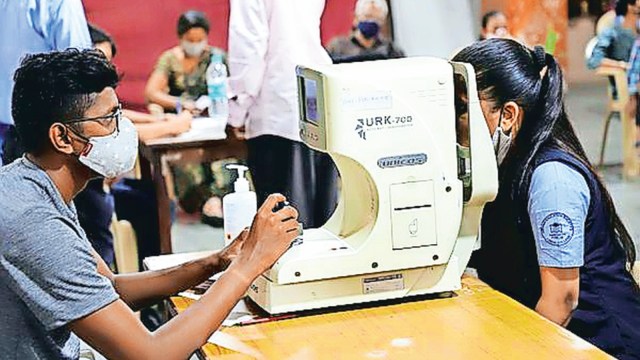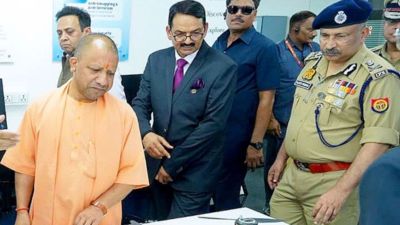At present, India follows an opt-in system for harvesting any organ — including tissue like cornea — from deceased donors, meaning the patient and their family members have to provide their consent to the donation.

“Experts were of the opinion that the opt-out method — where everyone who dies in a hospital is presumed to be a donor — is likely to increase the number of corneal donation. This suggestion has been accepted in-principle” said an official.
The official added that the proposal is being considered by legal teams as this would require changing the current law governing organ and tissue transplantation in the country.
The move is aimed towards increasing the availability to corneas or the dome-shaped front layer of the eye. Patients with damaged cornea — bulging outward, thinning, tearing, swelling, ulcers, and complications from previous surgeries — require cornea transplant to relieve symptoms and restore vision. An estimated 2 lakh corneas are needed each year in India with only 50% of the demand being met.
One of the experts consulted is Radhika Tandon, professor of ophthalmology at the All India Institute of Medical Sciences.
“From the point of view of medical professionals and those waiting for cornea transplant, an opt-out method is beneficial,” said Tandon, “because it is likely to increase the number of donations while preserving the autonomy of the deceased and their family members by allowing them the choice to opt out. But, of course, people may be hesitant or emotional about the issue, that needs to be looked into. In any case, this would require a change in the law.”
Story continues below this ad
There are several reasons why the government is considering a separate policy for cornea donation as compared to the opt-in method followed for donation of other organs.
One, cornea is a tissue that does not need blood supply unlike other organs and can be harvested upto six hours after death. Two, cornea can be easily harvested by technicians even at home, meaning most hospitals will be able to do it.
Three, harvesting cornea does not change any facial features of the deceased. Four, corneas are not necessary for collecting evidence in a medico-legal case.
ExplainedAdvantage cornea
Corneas are identified for “opt-out” consent because: it doesn’t need blood supply so can be harvested even 6 hours after death; not key in medico-legal cases; easy to harvest; and removal does not change facial features.
“A comprehensive proposal has to be made, suggesting changes to the current law. And, since amendments to the act would have to be brought to Parliament, any other changes needed to the law will also be made at the same time. A legal agency is taking a look at the provisions,” the official said.
Story continues below this ad
The official added that the National Organ and Tissue Transplant Organisation (NOTTO) is working to set up a national registry and coordination network on the lines of what already exists for other organs.
“At an institutional level, eye banks may be maintaining waiting lists, but we are trying to streamline the process on a national level. This will improve utilisation of corneas as well. A process similar to what is followed for other organs is being set up for corneas, too, where the hospital that has harvested the tissue will have the first right over it. If there is no patient in need then it will be shared with other hospitals in the state, then others in the region, and finally other regions of the country,” said the official.
As of now, a share of harvested corneas cannot be utilised, according to Tandon. She said: “A better network will improve utilisation of cornea. If a centre does not have the kind of patients who might benefit from a transplant, it may be shared with others. Any surplus can also be distributed in the same way.”









